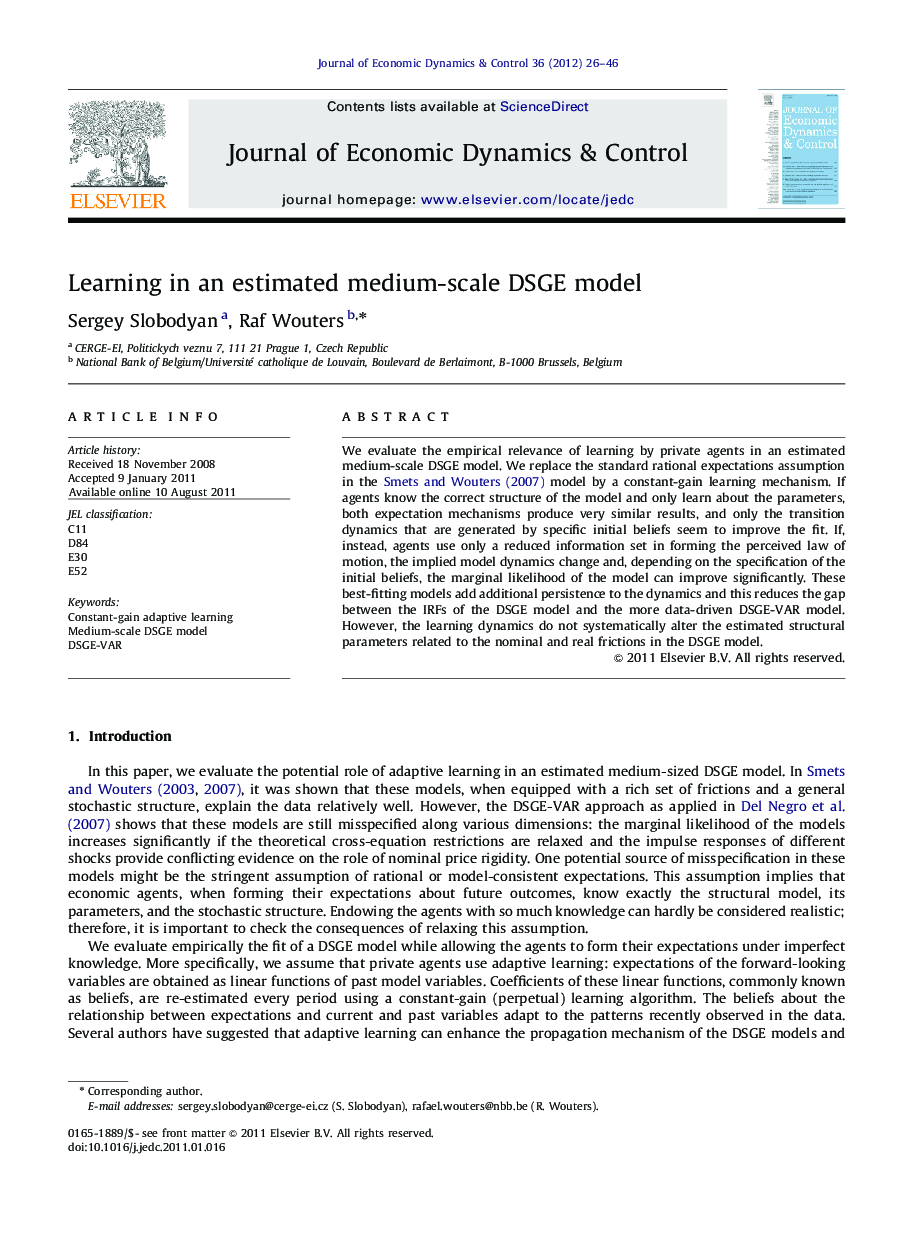| Article ID | Journal | Published Year | Pages | File Type |
|---|---|---|---|---|
| 5099230 | Journal of Economic Dynamics and Control | 2012 | 21 Pages |
Abstract
We evaluate the empirical relevance of learning by private agents in an estimated medium-scale DSGE model. We replace the standard rational expectations assumption in the Smets and Wouters (2007) model by a constant-gain learning mechanism. If agents know the correct structure of the model and only learn about the parameters, both expectation mechanisms produce very similar results, and only the transition dynamics that are generated by specific initial beliefs seem to improve the fit. If, instead, agents use only a reduced information set in forming the perceived law of motion, the implied model dynamics change and, depending on the specification of the initial beliefs, the marginal likelihood of the model can improve significantly. These best-fitting models add additional persistence to the dynamics and this reduces the gap between the IRFs of the DSGE model and the more data-driven DSGE-VAR model. However, the learning dynamics do not systematically alter the estimated structural parameters related to the nominal and real frictions in the DSGE model.
Related Topics
Physical Sciences and Engineering
Mathematics
Control and Optimization
Authors
Sergey Slobodyan, Raf Wouters,
